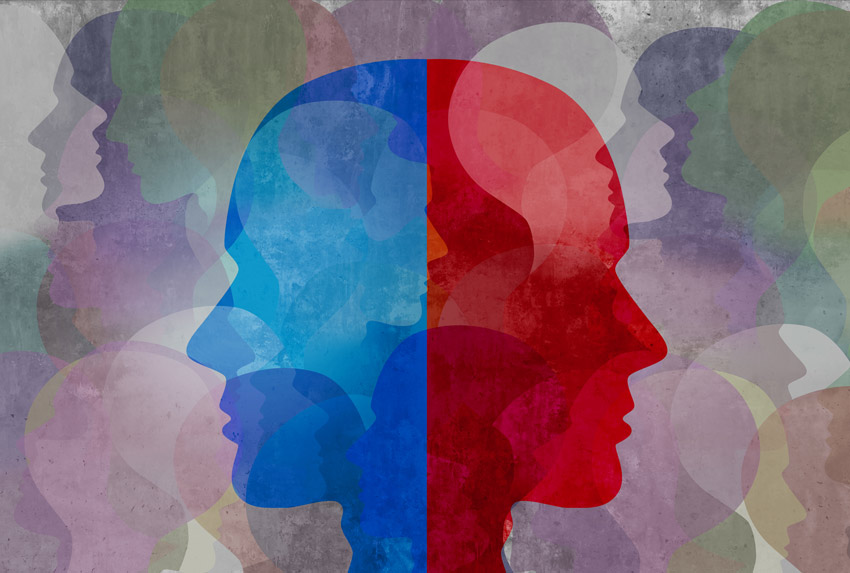Many mental health conditions can both cause and be caused by substance abuse. Substance use can also exacerbate any ongoing mental health problems. In fact, alcohol or drug addiction is a mental health condition itself – and having multiple mental health issues at once makes each that much more difficult to treat.
Terminology
Having a substance use disorder alongside any other mental health condition is either called a co-existing or co-occurring condition, or a dual diagnosis. The terms are interchangeable, and it makes no difference which condition came first – both need to be addressed during recovery for lasting progress to be made. If the mental health aspect isn’t being addressed, the person will have a difficult time sustaining their sobriety.
Common Causable Disorders
A 2017 study reports that of the 42.3 million adults with mental illness, nearly one in five also has a substance abuse disorder. Anxiety, depression, bipolar, and schizophrenia are the mental health disorders most commonly linked to substance abuse, but they are just the tip of the iceberg. Many other disorders also parallel addictions, though not all are connected to substance addictions – behavioral addictions (like shopping, sex, or video game addictions) are also prevalent among those with mental health problems.
Many people with mental health issues turn to substance use as a means of self-medicating to deal with their condition. Alcohol can calm the nerves of someone who struggles with social anxiety. Cocaine, Adderall or meth are commonly used to increase energy and productivity. Cigarettes can ease anxiety and stress, and marijuana is popular for pain management.
When these self-medicating practices cross the line to habitual use and/or dependency, it becomes a coexisting condition. Unfortunately, many people in this situation have no desire to give up their substance use or don’t think treatment for either condition would help.
The most dangerous outcome with a dual diagnosis is when the disorders win and someone ends their life to escape from the challenges. The combination of substance use and other mental health disorders can prove to be too much for some people.
Challenges to Treatment
In the 1990s, treatment options were different in that mental health professionals wouldn’t generally accept dual-diagnosis clients for treatment until they had completed a substance abuse program. Though we now understand that co-occurring disorders need to be treated concurrently instead of sequentially, over half of people with co-existing conditions are still not getting any help with either mental health or substance abuse.
The largest stumbling block to getting treatment seems to be the cost. Whether it is mental health or substance use, insurance can be either unavailable or unhelpful (no coverage for treatment) and the cost is therefore perceived (or assumed) to be unaffordable. Other concerns bridging both conditions are the potential negative opinions of others, job uncertainty, and not knowing where to get treatment.
Conquering the Problem
When dealing with a dual diagnosis, treatment must manage both problems. If the substance use is treated while ignoring the mental health instigation – or if the mental health condition is handled without concern for the substance use – the chance for relapse is much greater. Mental illnesses and substance use trigger each other, and the interplay between them can negate progress made in either treatment.
Treatment for someone with co-existing conditions must be all-inclusive. Treatment that uses positive, supportive methods to build self-worth and confidence while combating the negative aspects of both the mental health disorder and the substance abuse has the greatest chance of success.
The staff of St. Gregory is committed to helping clients receive treatment for their substance use problems while also learning how to handle the stress, anxiety, or other emotions that might trigger (and be triggered by) substance use. If you have any questions regarding insurance, payment options, or why to choose this Iowa-based recovery center, don’t hesitate to ask!











